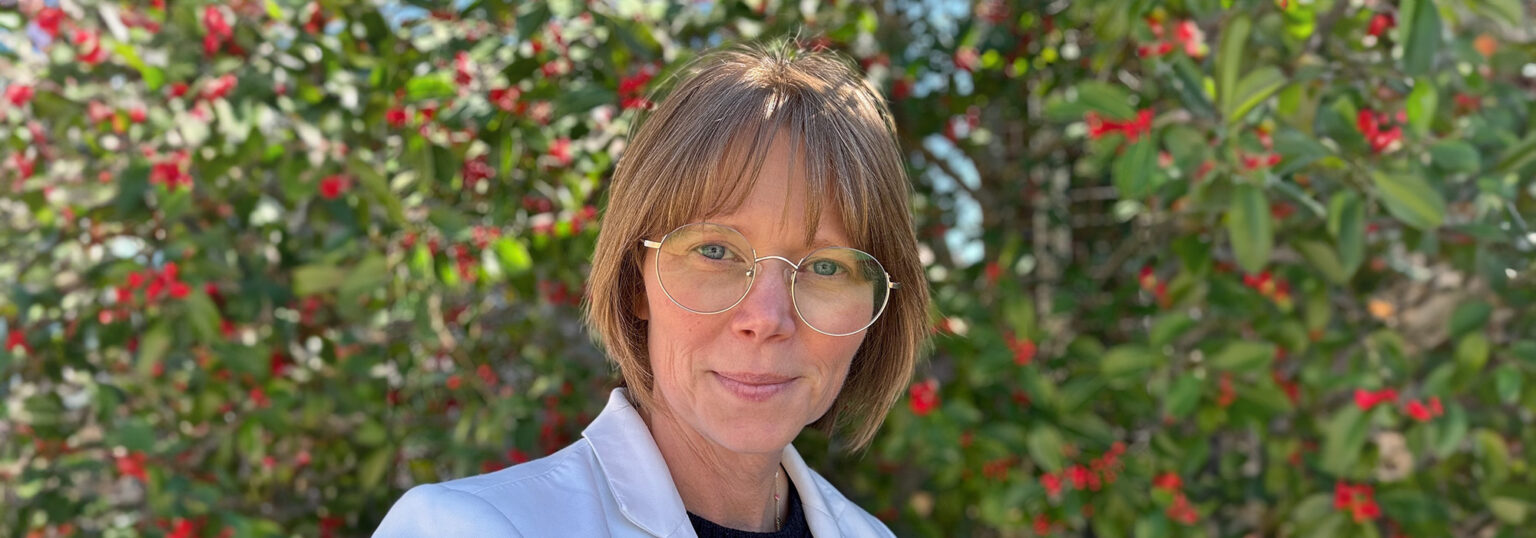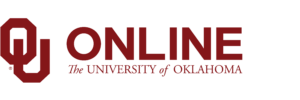YOUR FUTURE STARTS HERE
Complete the form below to learn more about our online programs and how to get started.

Faculty Spotlight – Kelly Feille
by Michael Mahaffey
Kelly Feille is an OU Jeannine Rainbolt College of Education faculty member, leading OU Online’s learning and education studies degree completion program. She joined OU in 2017.
How long have you worked for OU?
I started working for OU in 2017 in the Jeannine Rainbolt College of Education.
Tell us a little more about your education, professional background and experience.
I’m an associate professor of instructional leadership and academic curriculum specialzing in science education in the OU Jeannine Rainbolt College of Education, where I’m the Jane and John Kennedy Endowed Education Faculty Fellow. I also serve as lead faculty for the Learning and Education Studies online bachelor’s degree program, which was created in partnership with the OU College of Professional and Continuing Studies.
I have a bachelor’s degree in philosophy, with a minor in math from Texas State University. I kind of fell into the career of teaching and came about it in a different way, much like many of our teachers in the state are doing right now. I sought out extensive professional development every summer, and that’s what led me to my Ph.D. My Ph.D. is in science education from Texas Christian University. My emphasis is in environmental sciences, so I spent a lot of time in ecology and environmental science classes. My master’s work was in theological studies.
I was inspired to teach by my husband, who at the time was a fifth-grade teacher. He’s still one of the best teachers I’ve ever seen. He made it look like something I didn’t know teaching could look like. It wasn’t until I saw someone doing it in a way that really honored students and their questions and their strengths that I found myself wanting to pursue this career. As a classroom teacher, my band is really fourth through eighth grade. Middle schoolers are my jam. Their sense of humor and teetering between child and adolescent is an exciting time.
I started as a sixth-grade science teacher, and while I was teaching, I began to pursue my Ph.D. in science education. Teaching at OU was not something I saw as an option, especially starting as an alternatively certified teacher. I felt very much like an imposter in the classroom, which is why I sought out so much additional training and support. Eventually, I was a leader in my building and a leader in my district, so I just had to keep going.
Since graduating with my Ph.D., I’ve spent my career working primarily with our elementary pre-service teachers, helping them to see themselves as science teachers in and outside of the classroom. I spent three years before I came to OU at a different institution working as a lecturer, primarily with the same group.
At OU, my research focuses on how we can help teachers see the opportunities for authentic science learning, in particular outside of the classroom. All my teaching and research is on how we help folks see themselves as competent and excited science teachers for students of all ages, but especially in those elementary grades. A lot of our students are scared of the content of science. In the elementary grades, we expect them to be generalists, and they feel like they need to be experts on all the topics when they really don’t. They just need good pedagogy. As long as they can feel excited about it and embrace asking questions and seeking out answers, they’ll be fine.
What is your favorite thing about being an instructor for OU?
I think one of my favorite things is when my students begin to see themselves as something they didn’t know they could be – when they begin to feel like experts in their field. When my undergraduates feel like they can leave my class and walk into a classroom and be successful. When they know they can step into a school building, and they know what good teaching is and what good teaching looks like. And when my graduate students realize they really are leaders and experts within their field because of their experiences and coursework and the research they’re doing. As much as I battle imposter syndrome myself, one of the most exciting things is when I see my students change their perception of themselves and really own that identity as a teacher and expert in science education.
The online Learning and Education Studies degree completion program is new. What do you want prospective students to know about why it was created and what they can learn from it?
Our main goal is to give a foundational understanding of learning and education to our students. I hope folks in the program see it as a beginning. This is the beginning of a career in lifelong learning.
There is a lot of demand across the state for folks to be in the classroom and do a good job. There’s a real risk when we have emergency and alternatively certified teachers enter classrooms who don’t feel like they have a background in education. Teaching is a hard profession. It’s really hard to work with students at any level. The online LES program supports a population of students who see themselves teaching in schools, but life got in the way, or they didn’t quite know that’s where they were meant to be yet.
I can relate to that as someone who didn’t know that’s where I belonged until much later. This program fills an important need. It prepares our students to see themselves working with EC-12 students and belonging in the classroom. The online program provides a foundation in what learning and education can be for students, but it doesn’t make them teachers. It provides a starting point so they can seek out additional degrees, training and support towards certification, or it can help them just be better at the positions they already hold in the classroom.
We hope they see it as an opportunity to seek further development and to pursue certification once they’re done. Completion of the LES degree sets students up to seek alternative certification. It’s not a pathway to certification. It’s a pathway to a degree. It also sets them up if graduate studies are a thing they see in their future. If they see themselves as leaders in the school building, we have some great opportunities in the College of Education for them to pursue that both online and in person, depending on their objectives.
What is your favorite course to teach?
My favorite course to teach is the Elementary Science Methods course. That course runs every semester in one or two sections. These students are seniors, and they’re getting ready to go into their internship, so it’s really where they’re starting to see themselves as professionals. There’s a lot of synthesis and a lot of moving into application, so there’s a lot of opportunity to help them bridge their experiences as learners and figure out how to fit that into a new paradigm of education as we try to move science teaching forward for our students.
Is there a student or class that has influenced you or made an impact on your life in any way?
I feel like I’m a different teacher after every semester of interacting with my students. I learn so much about who I am and what I’m doing from them. I’m always trying to improve and respond to our students in a better way.
What advice do you have for adult students returning to school?
The hardest thing is they’re balancing a lot more things in life than traditional students. Time management and prioritizing becomes a challenge. That shows up for more of our students I think than we would anticipate. Figuring out how to prioritize tasks and making time for what needs to be done and what is most important in each moment is what they end up emphasizing.
What is your favorite thing about teaching adults?
What I have found is that they are more driven. They really have a solid idea of what they want to do and why. One of the things I think is most important to capture is our students’ lived experiences. If I can get more diverse and varied experiences in a classroom, it really helps us all make sense of teaching, of content, of pedagogy. Those stories really enrich a classroom environment. They really help me as a teacher to understand and meet my students’ needs. Encouraging folks to capitalize on their lived experiences and recognize those as learning moments is exciting.
What are the challenges and opportunities that come with teaching courses online?
What we’re finding is our students are equally comfortable in online and in-person learning environments. The challenge is it’s a lot harder for us to forge relationships and learn about the students’ experiences and who they are as individuals. We’ve tried to be really intentional in the class design in the LES program to create opportunities for the students to get to know one another and see each other as resources and for our faculty to learn about the students.
An additional challenge from the student side is it’s harder to get support. If you have questions about an assignment or something that has happened in an in-person class, it’s easy to stop for a few minutes after class and ask those questions. It’s more difficult when that is done through email or Canvas communications.
The biggest opportunity is our reach. Students can’t always come to campus for these classes. Many of our upper-level courses for our in-person classes are three-hour classes, and a lot of them are held during the day. If you’re a working adult, figuring out how to work those classes in is difficult. If you’re a working adult with children who have busy schedules like myself, it’s nearly impossible. My colleagues and I see this as an opportunity to reach a population of students who otherwise wouldn’t be able to get some of this foundational knowledge and understand what it’s like to be in a K-12 school setting and work with students at any level.
What kind of experience do you want students to have in your courses?
I want our students to understand that the work they’re doing is hard and challenging, but it’s some of the most rewarding work you can do. I want them to understand who students are or to learn about who students are, and I want them to understand how EC-12 students learn and progress through learning as they age. We want them to understand how to respond to a class of 26 students who all have different lived experiences. They come to school every day with different stories and different needs, and you have to figure out how to navigate and respond to that. I want them to have a passion to continue to fight for our EC-12 students to improve education in the state of Oklahoma and beyond. Our students deserve the very best in the classrooms.
What do you do to encourage students to engage with each other? How important is it that they develop a sense of camaraderie/community with each other?
As our courses are being developed, we try to capitalize on the discussions as much as possible and look into what we can do to capitalize on technology that lets you create community in an asynchronous online environment. Each course offers optional Zoom meetings where students can interact with each other. We’re in the early stages of seeing how students take advantage of them, and we’ll continue to build those opportunities in as we go.
We hope it’s something they take advantage of because we know that working in classrooms can be a lonely experience, which seems odd when you’re working in a building with other people, but it can feel isolating when you’re trying to figure it out as someone who hasn’t had comprehensive development as a teacher. In some of our rural schools in Oklahoma, folks really are isolated as they do the work.
OU Online loves to showcase the exceptional instructors who teach our online master’s and bachelor’s degree courses. If you know an instructor who would make an interesting feature, please email us at online@ou.edu.
OU Online
338 Cate Center Drive, Rm. 381
Norman, Oklahoma 73072
Online Programs
Quick Links
OU Online

